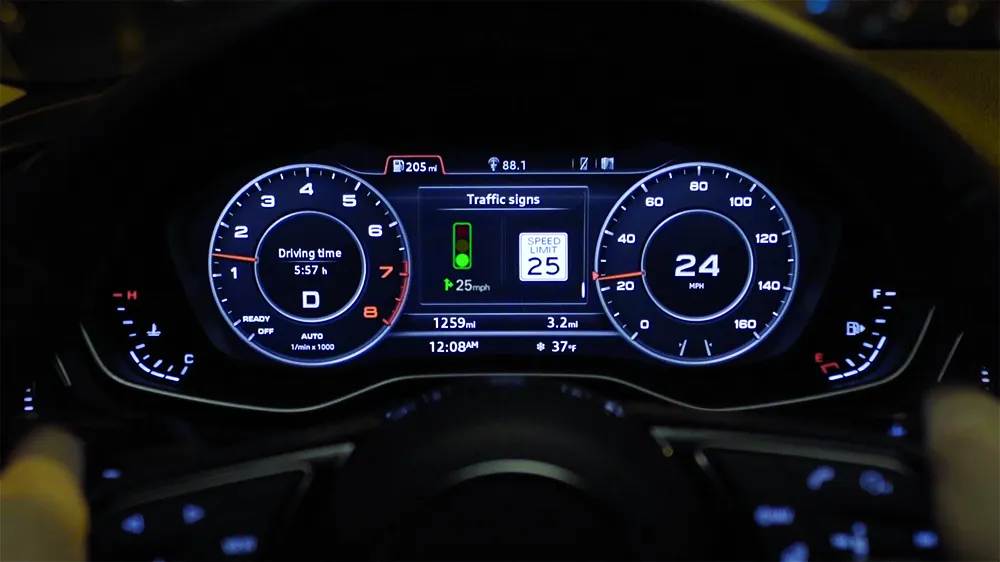Following the adoption yesterday of the European Commission's proposals to reduce CO2 emissions from cars and vans, the European Automobile Manufacturers' Association (ACEA) says it will now work with its members to conduct a full analysis of how the proposed targets should be reached as well as their feasibility, and what this means in practice for the industry as a whole.
July 12, 2012
Read time: 3 mins
RSSFollowing the adoption yesterday of the European Commission's proposals to reduce CO2 emissions from cars and vans, the European Automobile Manufacturers' Association (6175 ACEA) says it will now work with its members to conduct a full analysis of how the proposed targets should be reached as well as their feasibility, and what this means in practice for the industry as a whole.
The auto industry shares concerns about global warming and is contributing actively to find sustainable solutions. In 2011, the average fleet emissions were 136.6 gCO2/km compared to 186 gCO2/km in 1995, which is a 26.6% decrease over the period. "It is clear that CO2 levels from vehicles have to continue on their downward trend and the industry is committed to deliver on this," stated Ivan Hodac, ACEA secretary general.
However, the proposal to reach a fleet-average target of 95 gCO2/km for cars and 147 gCO2/km for vans by 2020 will remain extremely challenging.
"These are tough targets - the toughest in the world," said Hodac. Indeed, contrary to some claims, the proposed targets for the European fleet are far more stringent than those in the US, China or Japan. This will increase manufacturing costs in Europe, creating a competitive disadvantage for the region and further slowing the renewal of the fleet.
In the context of declining car sales for the past five years running, the proposed targets would place an extra strain on manufacturers. The outlook for the industry as a whole is also pessimistic. In 2012 new car registrations are expected to decrease by about seven per cent compared to 2011, and sales are set to drop from 13.1 million to 12.2 million. This is a record low since 1995.
"Considering that most manufacturers are losing money in Europe at the moment, the industry needs as competitive a framework as possible. Targets, while ambitious, must be feasible. The overall regulatory framework and market environment must be supportive, as also agreed in the recently concluded CARS 21 process," explained Hodac.
"The industry is diverse; the CO2-legislation is complex, and the cost implications are huge. ACEA and its members will now take the time they need to investigate the details of these proposals and their envisaged consequences."
The ACEA members are BMW Group, DAF Trucks, Daimler, Fiat, Ford of Europe, General Motors Europe, Hyundai Motor Europe, Iveco, Jaguar Land Rover, Porsche, PSA Peugeot Citroën, Renault Group, Toyota Motor Europe, Volkswagen Group, Volvo Cars, Volvo Group. They provide direct employment to more than two million people and indirectly support another 10 million jobs.
The auto industry shares concerns about global warming and is contributing actively to find sustainable solutions. In 2011, the average fleet emissions were 136.6 gCO2/km compared to 186 gCO2/km in 1995, which is a 26.6% decrease over the period. "It is clear that CO2 levels from vehicles have to continue on their downward trend and the industry is committed to deliver on this," stated Ivan Hodac, ACEA secretary general.
However, the proposal to reach a fleet-average target of 95 gCO2/km for cars and 147 gCO2/km for vans by 2020 will remain extremely challenging.
"These are tough targets - the toughest in the world," said Hodac. Indeed, contrary to some claims, the proposed targets for the European fleet are far more stringent than those in the US, China or Japan. This will increase manufacturing costs in Europe, creating a competitive disadvantage for the region and further slowing the renewal of the fleet.
In the context of declining car sales for the past five years running, the proposed targets would place an extra strain on manufacturers. The outlook for the industry as a whole is also pessimistic. In 2012 new car registrations are expected to decrease by about seven per cent compared to 2011, and sales are set to drop from 13.1 million to 12.2 million. This is a record low since 1995.
"Considering that most manufacturers are losing money in Europe at the moment, the industry needs as competitive a framework as possible. Targets, while ambitious, must be feasible. The overall regulatory framework and market environment must be supportive, as also agreed in the recently concluded CARS 21 process," explained Hodac.
"The industry is diverse; the CO2-legislation is complex, and the cost implications are huge. ACEA and its members will now take the time they need to investigate the details of these proposals and their envisaged consequences."
The ACEA members are BMW Group, DAF Trucks, Daimler, Fiat, Ford of Europe, General Motors Europe, Hyundai Motor Europe, Iveco, Jaguar Land Rover, Porsche, PSA Peugeot Citroën, Renault Group, Toyota Motor Europe, Volkswagen Group, Volvo Cars, Volvo Group. They provide direct employment to more than two million people and indirectly support another 10 million jobs.








